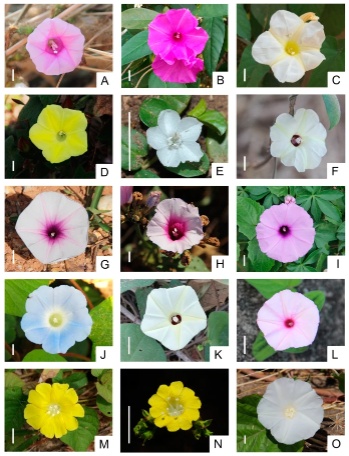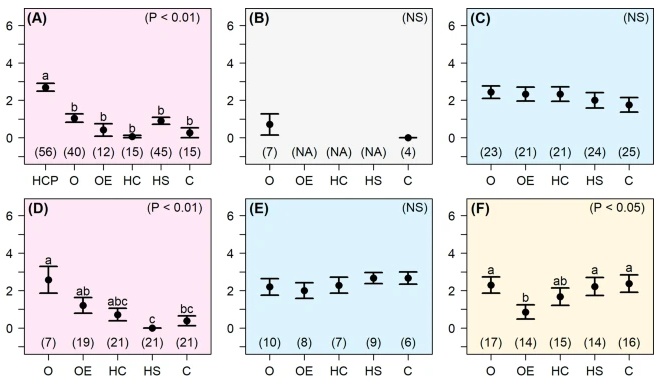Background
The Convolvulaceae is a large family containing species exhibiting a range of breeding systems and pollinated by diverse animal taxa. We studied the pollination ecology of 15 Convolvulaceae species, representing seven genera (Argyreia Lour., Camonea Raf., Evolvulus L., Hewittia Wight & Arn., Ipomoea L., Merremia Dennst. ex Endl., and Operculina Silva Manso), in northeastern Thailand, a family that is highly diverse yet understudied in the paleotropics. Specifically, we studied their compatibility systems and degrees of pollinator dependency using pollination experiments, examined pollinator composition and visitation rates using video observation, and determined if there is an association between pollinator visitation rates and degree of pollinator dependence.
Results
Our results showed that most species are self-compatible, but the degree of pollinator dependence varies. Six species were found to be highly dependent on pollinators, as two are self-incompatible and four are self-compatible but had reduced seed set when pollinators were excluded, possibly due to herkogamy. Seven species showed low dependence on pollinators and seed set remained high when pollinators were excluded. Pollinator dependence was inconclusive for two species as seed set was low in all pollination treatments. We also found an association between pollinator visitation rates and degree of pollinator dependence. Specifically, species exhibiting high pollinator dependence received frequent visits from pollinators, while species exhibiting low pollinator dependence either received frequent visits from pollinators (and received high amounts of xenogamous pollen) or infrequent visits from pollinators (and received significantly lower amounts of xenogamous pollen). Most of our study species were primarily visited by bees (e.g., Lasioglossum, Amegilla, Apis, and meliponines), with the exception of one night-blooming species that was visited primarily by crepuscular butterflies and hawkmoths.

See more : https://bmcplantbiol.biomedcentral.com/articles/10.1186/s12870-023-04437-y

